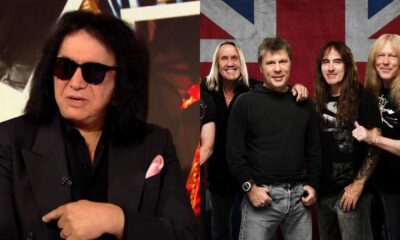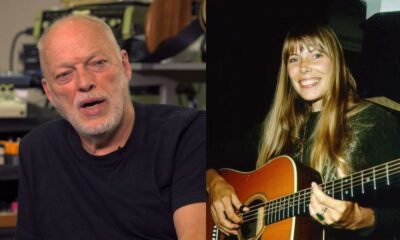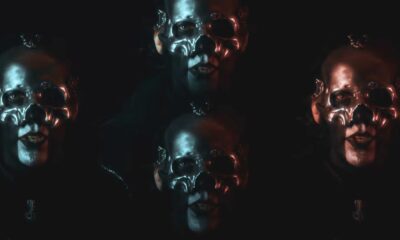ARTICLES
The artist that Bob Dylan said was a musician’s musician
If there’s someone who can truly speak about music with depth, it’s Bob Dylan. He is one of the most prolific and influential songwriters of all time. With a career spanning more than six decades, Dylan has had the opportunity to meet and watch many incredible artists perform.
As the years went by, he began giving fewer interviews and rarely spoke to the press. But when he did, he often mentioned other artists and even referred to one as a musician’s musician.
The artist that Bob Dylan said was a musician’s musician
Unlike many people might think, Bob Dylan has been quite aware of the music that was being made during the past six decades. That can be seen in his recent book “The Philosophy of Modern Song”, in which he talks about artists like Ronnie James Dio (Rainbow, Black Sabbath, Dio) and Duff McKagan (Guns N’ Roses, Velvet Revolver). There are many underrated artists that he likes and one of them is the late Warren Zevon, who he once said was a “musician’s musician”.
Dylan said that in an interview back in 2009 with the MTV producer Bill Flanagan. He was first asked who were his favorite songwriters and he listed Zevon, Randy Newman, John Prine, Guy Clark and Gordon Lightfoot as examples. When asked if he knew Zevon he said: “Not very well”. Then he talked about what he liked about the artist. “’Lawyers, Guns and Money,’ ‘Boom Boom Mancini,’ down hard stuff, ‘Join me in L.A.’ Sort of straddles the line between heartfelt and primeval. His musical patterns are all over the place. Probably because he’s classically trained. There might be three separate songs within a Zevon song. But they’re all effortlessly connected. Zevon was a musician’s musician, a tortured one. ‘Desperado Under the Eaves.’ It’s all in there,” Bob Dylan said.
Another Warren Zevon song mentioned by Dylan was “Splendid Isolation.” The musician referred to that song in a 2022 interview with Wall Street Journal in 2022 when discussing the use of technology these days. “Technology can nurture us, or it can shut us out. Creation is a funny thing. When we’re creating or inventing something, we’re more vulnerable than we’ll ever will be, eating and sleeping mean nothing.”
He continued:
“We’re in ‘Splendid Isolation,’ like in the (Warren) Zevon song; the world of self, like Georgia O’Keefe alone in the desert. To be creative you’ve got to be unsociable and tight-assed. Not necessarily violent and ugly, just unfriendly and distracted. You’re self-sufficient and you stay focused,” Bob Dylan said.
They ended up recording together in 1987 when Bob Dylan played the harmonica in “The Factory”, a track from Zevon’s album “Sentimental Hygiene”. That record also had other special guests like Flea, Peter Buck, Don Henley, Brian Setzer, Michael Stipe and Neil Young.
They recorded together
Warren recalled in an interview with BBC Radio in 2000 (Transcribed by Rock and Roll Garage) how that collaboration happened. He also recalled how hard it is to start a conversation with Dylan. “He came to the studio one day (unannounced) to say hello. Was a big hello for me, a high point of my career certainly, in my life. I asked him to play harmonica and he came back a week later and played harmonica.”
“He wanted to play lead guitar but we all want to play lead guitar, sorry. (…) He said some nice things about me, about my songwriting and then my manager, my producer Andy Slater, he was there. Andy produces The Wallflowers now, coincidentally or ironically (Dylan’s son band – Jakob Dylan). (At the time) Andy said to Bob ‘You’ve been recording?’ and Bob said: ‘Sometimes’. Sometimes it didn’t seem he was a small talk kind of guy
Bob Dylan covered Zevon as a tribute before his death
Warren Zevon passed away back in 2003 at the age of 56, a victim of cancer. Sometime before his death, the musician announced he was terminally ill and Dylan paid tribute to him many times during his tour at the time. He covered songs like “Accidentally Like a Martyr”, “Boom, Boom Mancini” and “Mutineer”.
The almost 17-minute Bob Dylan song ‘Murder Most Foul,’ released on his 2020 album Rough and Rowdy Ways, made reference to many famous artists, including Zevon.










